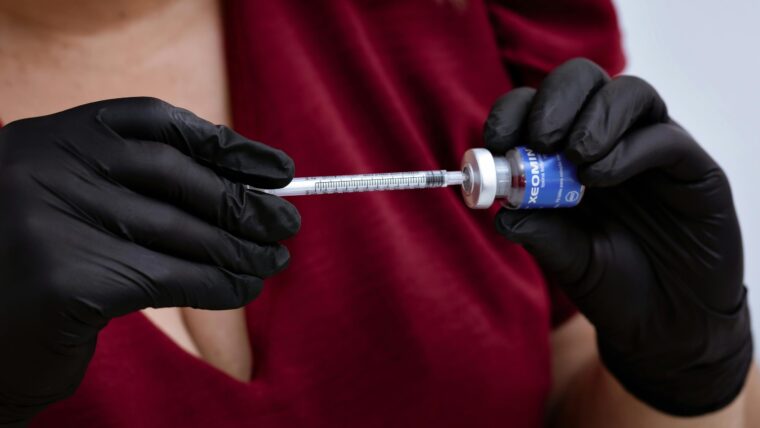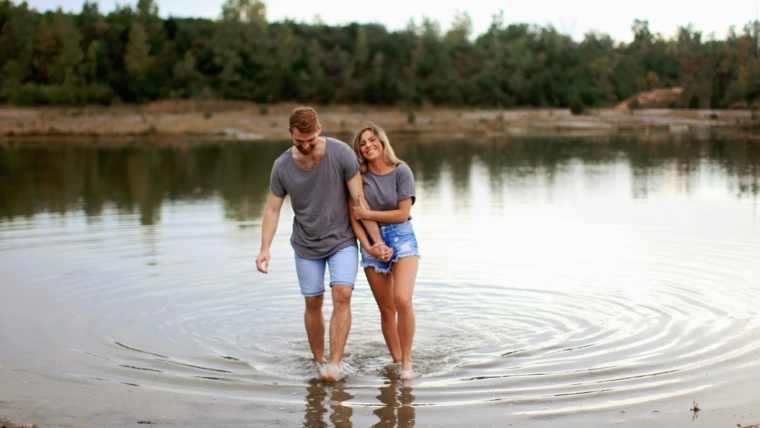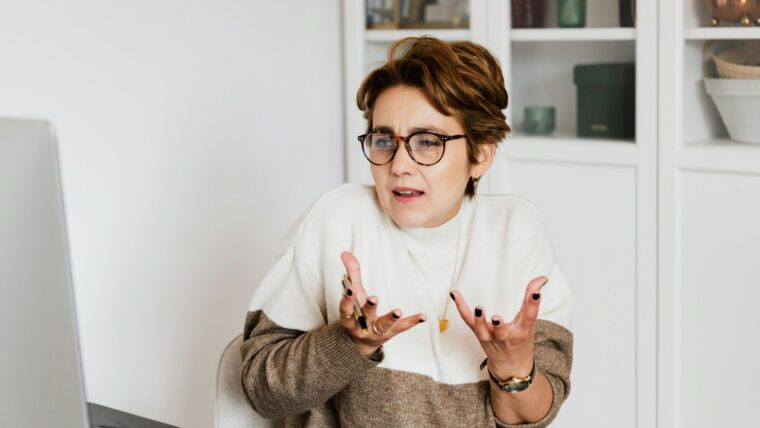Two operations later, countless tearful examinations, and many late nights spent exhausting the Google search engine in the hope of answers – I wonder why it is that it took a decade for my pain to be believed.
A whole decade for my lived trauma to be taken seriously by health professionals…
Living with Vaginismus as a secondary result of Lichen Sclerosis is something I’ve talked about before on my blog. You can find my previous posts in the female health category for more context, but today I wanted to try and discuss how it feels to deal with female health issues that aren’t visible.
It’s been a while since I’ve felt in the right head space to type up my thoughts and feelings on this, but if having these issues has taught me anything, it’s to shout loudly and unashamedly about them for those that are still undiagnosed and suffering countless setbacks.
For a bit of history, I suffered with Lichen Sclerosis as a child and it left me with scar tissue that basically just means that my vagina opening looks smaller than the average.
Lichen Sclerosis is an incredibly painful skin condition that can cause the skin to break, bleed, and even fuse together when a flare up is particularly bad.
It’s something I have suffered with since I was child – I remember waking up in the night scratching myself, and having to run baths to wee because I was in so much pain. I think at the time, my mum assumed I had Cystitis or something similar, and I was always quite private when I had these flare ups – not wanting to make a fuss or be vocal that there was something wrong with me.
I don’t really remember much of how I felt about it back then, but I think I remember feeling different.
I think from a very early age, I learnt how to internalize pain rather than share it with those around me.
I remember my first day of school vividly – I wore a checked red and white gingham summer dress. I used to get random nose bleeds when I was younger (just to add to the list of cool things about me) and I remember walking around the playground at break time, wiping it on my red checked school dress and hoping it would blend in.
The more I’d wipe, the faster my nose would bleed and then the more out of control and isolated I felt.
I guess this is how I’ve dealt with pain for the majority of my life. I tend to sweep things under the rug until they inevitably rear their ugly heads and become much bigger issues than they were to begin with.
It’s a coping mechanism that many of us develop when we don’t know how to deal with something that feels bigger than we are.
I think this is why I had such a long and complicated journey when it came to getting help, and it’s definitely the reason I have such a turbulent relationship with my body.
I think the main issue for me was that my vagina looked totally ‘normal’ – albeit the slightly smaller opening (which is common with or without Lichen Sclerosis/some women are born with hymens that are thick or inflexible for example).
I say normal as if all vaginas aren’t normal, but what I mean is that there didn’t appear to be any psychical medical issues to the naked eye, and therefore I was always hurried out of medical rooms with this notion that it was all in my head.
The truth was, it was all in my vagina, and my gut kept telling me so.
Spurring me on to get further checks – even though I’d come away in floods of tears each time, convinced I was losing my mind because my pain wasn’t being believed by medical professionals.
Meanwhile, I felt as though I was missing out on experiences that all of my friends were having – that my youth was somehow passing me by and all I could do was sit and watch.
Internally screaming but nobody was listening. I wasn’t until I went to university and sought help in a different city that I even heard the word Vaginismus.
Although I was convinced that Vaginismus was definitely a correct diagnosis, I didn’t feel as though it was the only thing stopping me from having a ‘normal sex life’. I had this gut feeling that my body was tensing up for a reason, and I knew it wasn’t just something that I created in my head.
I saw a few psychosexual therapists who tried to get to the bottom of why I had vaginismus, but none of them seemed to help.
None of them really listened to me when I said that I felt it was something physical as well as the mental aspect.
On top of this, the university environment really wasn’t a place I was ever going to flourish – I spiralled out of control, abused my body, pushed people away, and eventually had my first bout of depression.
My university experience was one of the best and worst times of my life. I met so many incredible people and learnt so much about myself, but it was also the start of my sexual and mental health avoidance. That old sweeping things under the rug thing.
A few years later, I moved to Manchester and ended up making an appointment with a private clinic. This would be the start of some real progress in terms of both my mental and psychical health.
Finally I was being listened to – the only difference? I was paying this time.
The money I was earning from blogging was going towards private sessions with an amazing female Gynae that I found via a quick Google search.
I saw her just a short walk away from my flat, and it felt like the start of something completely new. The same Gynae went on to perform two different operations for me – one that I paid for privately, and one that I was able to get on the NHS without a long waiting time.
After a biopsy, it was confirmed that I did have dormant Lichen Sclerosis and that there was some internal issues too that were easily fixed (I actually don’t remember too much about what they were as I was told when very high on anaesthetic and I’ve since lost my Gynae notes but I’ll dig them out for a future post). For my second operation, I had my scar tissue into, but it inevitably healed back because I’m young with lots of Collagen in my skin. This was a heartbreaking circle of defeat to deal with, but something I was prepared for.
I would never ever bad mouth the NHS, but the sad truth is that they aren’t well equipped when it comes to dealing with female health issues, and so many people slip through the cracks as a result.
It took for me to have real conviction that there was something wrong with me for my pain to be taken seriously – it also took money for me to have more than fifteen minutes in a room with a Gynae so that I could explain my history and articulate what I thought might be wrong with me.
When I first had psychosexual therapy sessions on the NHS, appointments would be anything from four to six weeks apart. It felt impossible to make any real progress and I always ended up giving up hope.
I often wonder what would have happened if I hadn’t been in a position to pay for private help, and I worry for the people that are living that painful reality as I type this – a life that feels ruled by waiting lists.
It’s a kind of mental torture and loneliness that really doesn’t compare to anything else. Many times I’ve felt like I’m broken or damaged in a way that’s beyond repair – I’ve even convinced myself that I’m somehow less of a woman because my body seems to achieve less.
I’ve sat and listened to exciting stories about my friends sex lives, nodding along, all whilst wondering if I’ll ever feel like part of the club I’ve always been turned away from. Dealing with a chronic illness when you look seemingly ‘normal’ on the outside feels like you’re playing a character version of yourself in some sort of bad play.
It feels exhausting, tedious, and never ending.
I’ve often found myself wondering: why can’t I have something that people generally understand more broadly? Or at least have a diagnosis that people have heard of or can pronounce after the third time I’ve repeated it to them. Why do I have to have the two things that sound like they have been plucked from outer space?…
I never want my blog posts to be doom and gloom, and that’s the very reason I haven’t written candidly about my female health issues in a while. I always want to come online with something productive for whoever is taking the time to read this, because this blog has given me more than I could have ever hoped for.
Chatting with you guys over the years about your own female health issues has given me a sense of community that I spent years and years searching for. Sharing my issues has made me feel much more confident in who I am as a person, and less wrapped up in my body and how it’s prevented me from (what I thought for a long time) was being my ‘best self’.
I want you to know that if you are currently feeling let down by your body or as though you are broken in some way – you are not, and there is help to be found.
You just have to have the strength in yourself to keep pushing for answers.
There will be times when you aren’t listened to properly, but they will all seem insignificant when you find someone who does.
I think it’s also vital that as a society, we redefine what it means to have a ‘healthy sex life’. If the ultimate goal is always penetrative intercourse, then we are denying a huge proportion of people pleasure and happiness because of what they are unable to do with their bodies.
All bodies deserve love and pleasure.
Whether it’s a physical or mental disability – there needs to be less stigma attached to what counts as a real sexual experience.
If someone approached me in a bar or if I got chatting to someone on a night out when I was younger – I’d walk away or laugh it off and pretend I wasn’t interested. The truth was I couldn’t be bothered to explain why I wasn’t capable of a one night stand or a sexual encounter that didn’t feel painful and awkward.
How could I possibly have explained to someone else what I didn’t understand myself about my own body? Way to kill the mood.
At age twenty eight, I’m still struggling with my treatment and hoping for progress, but I’m also working on redefining what progress means to me. I think when we feel stunted, we forget to look back at how far we have come and all of the hurdles we have faced up until this point. There is no shame in staying in the same place for a while – try to make it feel like home.
I use steroid cream daily to thin the scar tissue that has now healed back, and I was also prescribed vaginal trainers again (which are about as fun as they sound) just before lockdown.
My last appointment was actually a couple of days before we went into lockdown and perhaps my most emotionally intense appointment yet. We talked through my options going forward and discussed the possibility of another operation but there’s really no quick fix when it comes to Vaginismus and Lichen Sclerosis (especially when you throw in a global health pandemic on top of everything else).
The hardest part of all is the mental battle – the idea that my brain is putting up physical barriers. Whether it’s counselling, psychosexual therapy, CBT, or regular meditation – there are a whole host of avenues to explore when it comes to reconnecting with your body and sexuality.
It’s been exhausting carrying around a body that nobody seems to understand.
It’s been exhausting to try and love a body that feels so far away. I dress my body in nice clothes, I moisturise it, I take it for walks with friends sometimes.
And yet, the language I often use towards my body is hateful, hurtful – I glance at it in the mirror, never quite understanding what I see, the image changes every single day. Sometimes multiple times a day.
Body Dysmorphia as a result of years of not understanding or being believed about my own body.
And yet, when I think of the strangers, and the Doctors, and the family members, and the school friends that failed me in one way or another, I feel grateful for the strength I have today.
Living with a debilitating female health condition that there’s barely any compassion or understanding for is hard. It’s even harder when those closest to you don’t know how to spot the warning signs or point you in the right direction.
You end up walking around in this invisible cloak that you create for yourself – a comfort blanket that only seems to cause further discomfort.
It becomes so tight that your chest hurts somedays – a body crying out for attention and healing. Notice me it seems to say, I’ll be yours if you just let me.
It’s important for me to write these posts because I would never want anyone to glance at my Instagram account or the curated images on here and feel the way I did as a young girl. If I could scoop her up out of the bath tub and tell her that I will create an environment that we will flourish in one day – I would.
I wouldn’t want anyone to assume I have this picture ‘perfect life’ or that I have things all figured out because I don’t.
Whilst I don’t believe I have anything to prove, I also want to add to my blog space in a meaningful way as I often as I can. If my experiences can help someone book that appointment or push for further treatment – that means everything.
I’m grateful that if I ever lucky enough to have a daughter, I’ll be equipped with an impressive tool kit when it comes to a plethora of female health issues.
I’m also grateful that I didn’t give up on myself and that despite the all the set backs of 2020, I’ll continue to try and heal myself and work on my relationship with my body.
I really hope that if you made it this far – you will too. The world needs healing more than ever, but so do we.
– Alice Catherine (30 years old, Manchester, UK)




